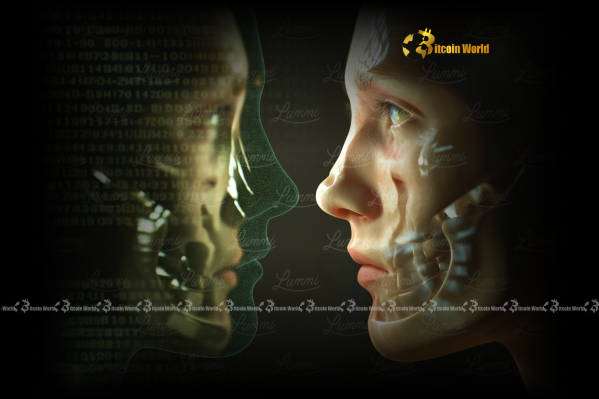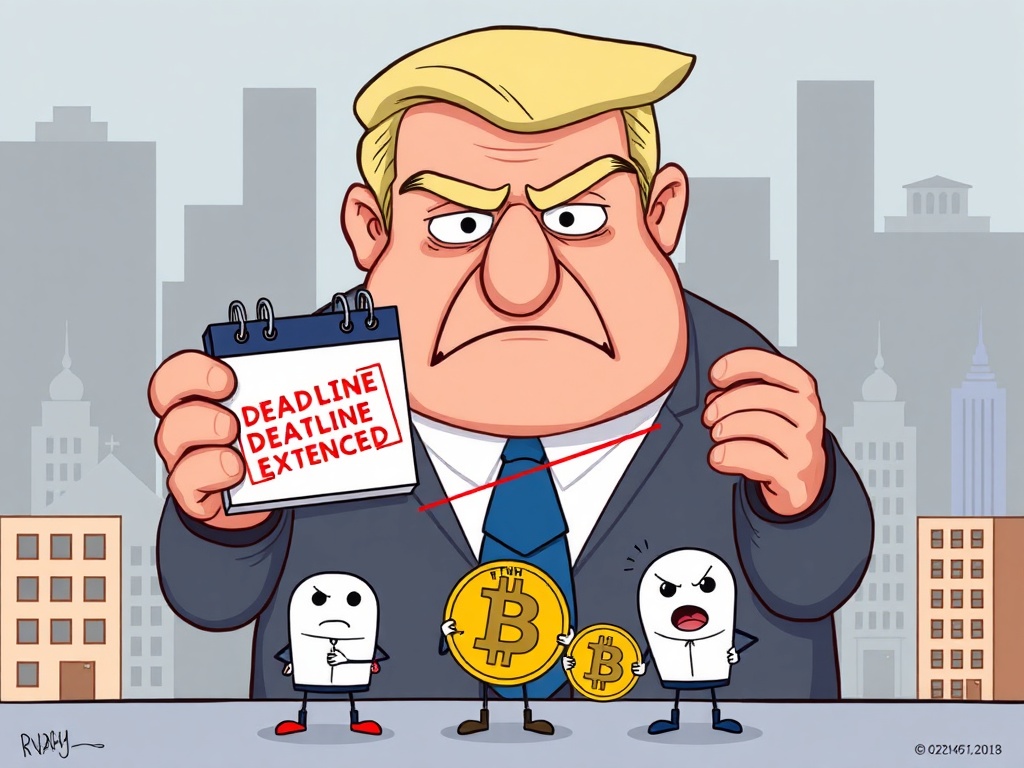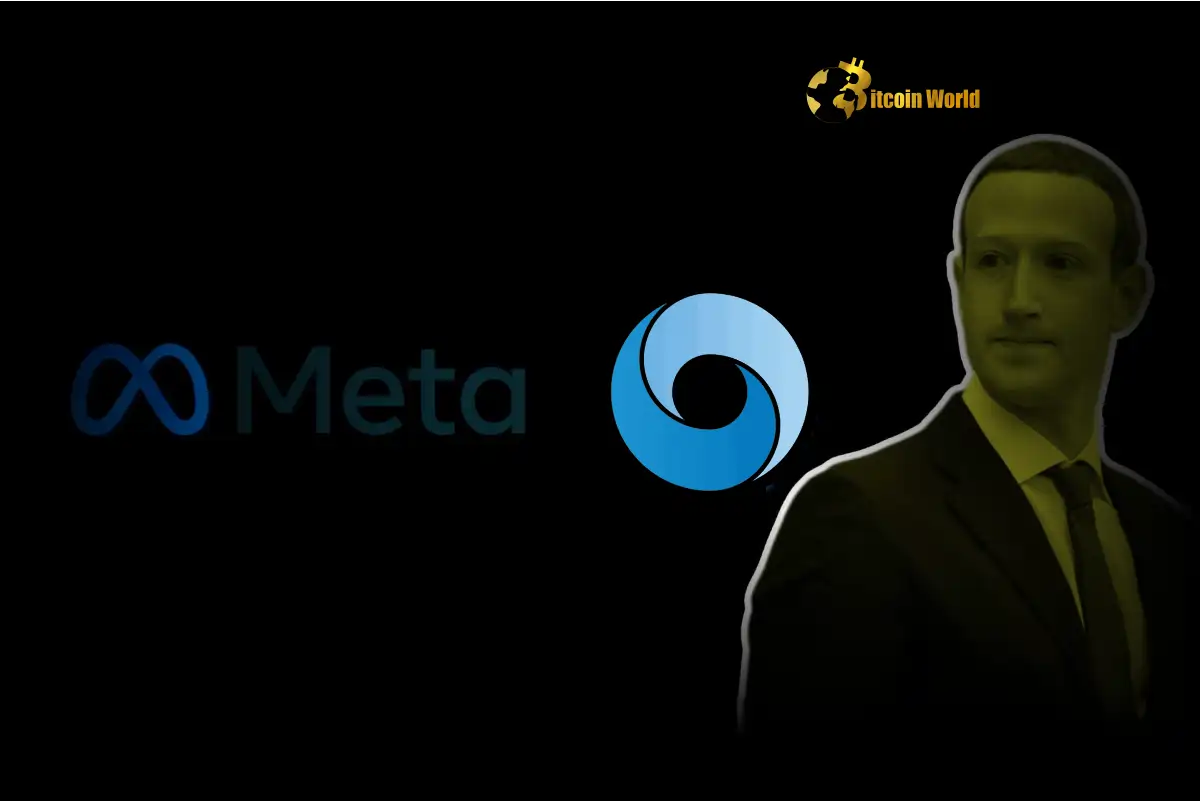BitcoinWorld

Deepfake Regulation: Denmark’s Groundbreaking Law Safeguards Digital Identity
In the rapidly evolving digital landscape, where the lines between reality and simulation blur, the concept of digital identity protection has become paramount. For those invested in cryptocurrencies and digital assets, the authenticity of online interactions and the security of personal data are not just concerns, but foundational pillars of trust. The rise of sophisticated deepfakes, capable of mimicking voices, faces, and mannerisms with startling accuracy, poses an unprecedented threat to this trust. Imagine a world where your digital persona could be weaponized against you, creating fake endorsements or spreading misinformation. This alarming prospect underscores the urgency for robust legal frameworks, and Denmark is stepping up to lead the charge.
Denmark’s Pioneering Stance on Deepfake Regulation
Denmark is on the cusp of implementing a landmark legal change designed to give its citizens unprecedented control over their own digital likeness. The Danish government is actively working to amend existing copyright law, granting individuals explicit rights to their own body, facial features, and voice. This move represents a significant shift in how personal identity is protected in the age of advanced artificial intelligence.
This groundbreaking initiative is specifically tailored to strengthen protections against the malicious creation and dissemination of deepfakes. According to reports from The Guardian, Denmark’s department of culture is preparing to submit a formal proposal to amend current legislation. What makes this effort particularly strong is the already secured cross-party support, indicating a unified national commitment to safeguarding individual rights against emerging digital threats.
Jakob Engel-Schmidt, the Danish culture minister, articulated the core philosophy behind this legislative push, stating, “In the bill we agree and are sending an unequivocal message that everybody has the right to their own body, their own voice and their own facial features, which is apparently not how the current law is protecting people against generative AI.” This statement highlights a crucial recognition: traditional laws were simply not designed to contend with the complexities introduced by modern AI technologies.
The Rise of Generative AI and the Urgent Need for Safeguards
The rapid advancement of generative AI has brought about incredible innovations, from creating stunning digital art to assisting in scientific research. However, with this power comes a significant potential for misuse, particularly in the realm of deepfakes. These AI-generated fabrications can be used for:
- Misinformation Campaigns: Creating fake videos of politicians or public figures making false statements, capable of swaying public opinion and destabilizing democracies.
- Financial Fraud: Impersonating individuals to gain access to sensitive information or conduct unauthorized transactions, posing a direct threat to digital asset holders.
- Reputational Damage: Producing fabricated content that damages a person’s image or career, often without their consent.
- Non-Consensual Content: Generating explicit material featuring individuals without their permission, leading to severe personal distress and privacy violations.
The ease with which deepfakes can be created and spread necessitates a proactive legal response. Current laws often struggle to categorize and prosecute these new forms of digital harm, leaving individuals vulnerable. Denmark’s approach seeks to address this by establishing a fundamental right that empowers individuals to control their own digital representations, moving beyond reactive measures to preventative legal frameworks.
A Global Look: Denmark’s Approach vs. US AI Copyright Efforts
While Denmark is forging a path with a comprehensive, fundamental rights-based approach, other nations, like the United States, have adopted more piecemeal strategies. In the U.S., several states have enacted their own deepfake laws, primarily focusing on specific misuse cases such as:
- Misinformation during elections.
- The creation and dissemination of non-consensual sexually explicit content.
However, these state-level efforts face significant challenges. A proposed budget reconciliation bill in the U.S. Congress could potentially strip states of their power to regulate AI for a decade. This preemption would create a regulatory vacuum, leaving citizens exposed to the very harms that state laws aimed to mitigate. This stark contrast highlights the different philosophies in addressing the complex issue of AI copyright and digital impersonation.
| Feature | Denmark’s Proposed Law | United States (Current State Laws) |
|---|---|---|
| Scope of Protection | Body, facial features, voice (comprehensive personal attributes) | Mainly elections, non-consensual sexually explicit content (specific use cases) |
| Legal Mechanism | Amendment to existing copyright law | State-level statutes, often criminal or civil penalties |
| Approach | Proactive, fundamental right to personal attributes | Reactive, addressing specific harms post-facto |
| Federal Intervention Risk | Low (national initiative) | High (potential preemption by new budget reconciliation bill) |
Securing Your Digital Identity Protection in the AI Era
The Danish initiative offers a compelling model for global digital identity protection. By establishing a clear right to one’s own features, it empowers individuals in an increasingly digitized world. This is particularly relevant for the cryptocurrency community, where identity verification and protection against impersonation are critical for secure transactions and participation in decentralized ecosystems.
Benefits of such a law include:
- Empowerment: Individuals gain legal recourse against unauthorized use of their digital likeness.
- Trust: Fosters greater trust in digital content and online interactions by creating accountability for deepfake creators.
- Precedent: Sets a strong international precedent for other nations to follow, pushing for more robust global AI governance.
However, implementing such a law is not without its challenges. Defining the precise scope of “facial features” or “voice” in a legal context can be complex. Enforcement across international borders, especially when deepfakes originate from different jurisdictions, will also require innovative solutions and international cooperation. Despite these hurdles, Denmark’s proactive stance represents a vital step towards ensuring that human dignity and rights are upheld in the face of rapidly advancing technology.
A Blueprint for the Future?
Denmark’s proposed law is more than just a national regulation; it’s a potential blueprint for how societies can adapt to the profound implications of generative AI. As AI capabilities continue to expand, the need for clear ethical guidelines and legal frameworks becomes ever more pressing. This pioneering legislation could inspire other countries to adopt similar measures, leading to a more secure and trustworthy digital environment for everyone.
For the crypto and blockchain communities, where identity and authenticity are paramount, such legal advancements offer a layer of security that complements technological solutions. Protecting the fundamental right to one’s own digital self is not just about preventing harm, but about building a future where individuals retain sovereignty over their digital existence.
To learn more about the latest AI market trends, explore our article on key developments shaping AI features and institutional adoption.
This post Deepfake Regulation: Denmark’s Groundbreaking Law Safeguards Digital Identity first appeared on BitcoinWorld and is written by Editorial Team





